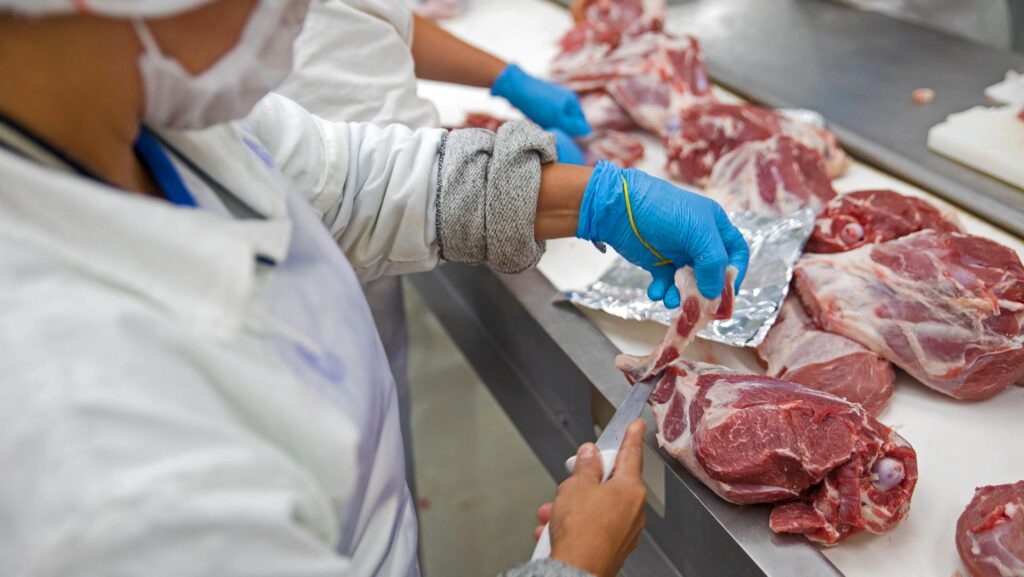Abattoir sector near ‘tipping point’ warn meat processors
 © Adobe Stock
© Adobe Stock Meat traders are warning of a sharp decline in livestock farming, increased reliance on imports, and a loss of UK food security if the government fails to halt the decline in abattoir numbers.
A new Meat Industry Manifesto prepared by the British Meat Processors Association (BMPA) explains that UK abattoir numbers have slumped from around 2,500 in the 1970s to just 203 today.
See also: NPA seeks total ban on personal pigmeat imports
It blames falling livestock numbers, onerous trade barriers, and a “systemic” labour shortage following Brexit.
“This should worry UK consumers and government alike because, once we go beyond a tipping point, it will lead to a sharper decline in domestic farming, a heavier reliance on imported meat, and the loss of a key pillar of UK food security,” warns the BMPA.
It adds that, if necessary, British meat processors could bring in more meat from abroad and just focus on processing and packaging products for sale.
But, as well as hurting British livestock farmers, this would also expose the UK to risks beyond our control like wars, climate change-driven shortages, and export bans where supplies are suddenly cut-off.
Brexit to blame
BMPA chief executive Nick Allen believes Brexit is a major factor behind many of the problems the meat sector now faces.
“Since we left the EU, the British meat industry has come under pressure from increased bureaucracy, tougher trade barriers and worker shortages,” he said.
The new Meat Industry Manifesto therefore sets out a number of proposals for government to help support the meat sector:
- Food strategy – including the use of public money to incentivise productivity and provide a safety net, but not to embed inefficiencies and poor practice
- Workforce/migration – including better use of resources for training domestic workers, but making it easier for processors to employ butchers from abroad
- Trade/borders – including alignment with EU standards and a common veterinary agreement with the EU to ease trade
- Environmental policy – including classing “food security” as a public good
- Regulations/standards – including matching UK standards with those in any country we sign future free-trade agreements with
“We see the election of a new Labour government as an opportunity to re-set how government and industry work together to share on-the-ground intelligence that will help shape pragmatic, workable policies that strengthen Britain’s long-term food security,” said Mr Allen.
